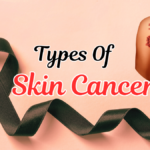Comprehensive FAQ on Squamous Cell Carcinoma

General Information
Q: What is squamous cell carcinoma?
A: Squamous cell carcinoma (SCC) is a type of skin cancer that originates in the squamous cells, which are flat cells found in the outermost layer of the skin. SCC can also occur in other areas of the body lined with squamous cells, such as the lungs, mouth, and throat.
Q: How common is squamous cell carcinoma?
A: SCC is the second most common type of skin cancer, with millions of new cases diagnosed globally each year.
Types of Squamous Cell Carcinoma
Q: What are the main types of squamous cell carcinoma?
A: The main types of SCC include:
- In situ squamous cell carcinoma (Bowen’s disease)
- Invasive squamous cell carcinoma
- Keratoacanthoma
Q: What is in situ squamous cell carcinoma (Bowen’s disease)?
A: In situ squamous cell carcinoma, also known as Bowen’s disease, is an early form of SCC that is confined to the outermost layer of the skin. It appears as red, scaly patches.
Q: What is invasive squamous cell carcinoma?
A: Invasive SCC penetrates deeper layers of the skin and can spread to other parts of the body. It appears as firm, red nodules or scaly, crusted lesions that may bleed.
Q: What is keratoacanthoma?
A: Keratoacanthoma is a type of SCC that grows rapidly and appears as a dome-shaped nodule with a central keratin plug. It is usually found on sun-exposed areas.
Risk Factors
Q: What are the risk factors for squamous cell carcinoma?
A: Risk factors include excessive sun exposure, fair skin, older age, weakened immune system, exposure to carcinogens, and chronic skin inflammation or injury.
Q: How does excessive sun exposure contribute to squamous cell carcinoma?
A: UV radiation from the sun or tanning beds damages the DNA in skin cells, leading to the development of SCC over time.
Q: Why are fair-skinned individuals at higher risk for squamous cell carcinoma?
A: Fair-skinned individuals have less melanin, which provides some protection against UV radiation. As a result, they are more susceptible to skin damage from the sun.
Symptoms and Diagnosis
Q: What are the symptoms of squamous cell carcinoma?
A: Symptoms include a firm, red nodule; a scaly, flat lesion; a sore that doesn’t heal; or a wart-like growth.
Q: How is squamous cell carcinoma diagnosed?
A: Diagnosis typically involves a skin biopsy, where a dermatologist removes a small sample of the suspicious area for laboratory analysis to confirm the presence of cancer cells.
Treatment Options
Q: What are the treatment options for squamous cell carcinoma?
A: Treatment options vary based on the type and stage of SCC and include:
- Topical treatments
- Cryotherapy
- Curettage and electrodessication
- Surgical excision
- Mohs surgery
- Radiation therapy
- Chemotherapy (rarely used)
Q: What is Mohs surgery?
A: Mohs surgery is a precise surgical technique where cancerous tissue is removed layer by layer and examined under a microscope until no abnormal cells remain, minimising the removal of healthy tissue.
Prevention
Q: How can squamous cell carcinoma be prevented?
A: Preventive measures include avoiding peak sun hours, wearing protective clothing, applying sunscreen regularly, using sunglasses with UV protection, and avoiding tanning beds.
Q: Why is regular skin examination important?
A: Regular skin exams, both self-exams and dermatologist visits, are crucial for early detection of SCC, which improves treatment outcomes and can prevent the cancer from spreading.
Special Considerations
Q: Are certain individuals more susceptible to squamous cell carcinoma?
A: Yes, individuals with fair skin, a history of sunburns, a family history of skin cancer, or those with weakened immune systems are more susceptible.
Q: Can squamous cell carcinoma occur in places other than the skin?
A: Yes, SCC can occur in other areas of the body lined with squamous cells, such as the lungs, mouth, and throat.
Advanced Information
Q: What are the complications of untreated squamous cell carcinoma?
A: Untreated SCC can grow large or spread to other parts of the body, causing serious health problems, including disfigurement and, in rare cases, death.
Q: How effective is treatment for squamous cell carcinoma?
A: Treatment for SCC is highly effective, especially when the cancer is detected early. Most cases can be cured with appropriate treatment.
Conclusion
Q: What should I do if I suspect I have squamous cell carcinoma?
A: If you notice any suspicious skin changes, such as persistent sores, unusual growths, or changes in existing moles, consult a dermatologist promptly for evaluation and management.
Disclaimer: This article is for informational purposes only and does not constitute medical advice. Always consult a healthcare professional for concerns about squamous cell carcinoma or other health issues.











